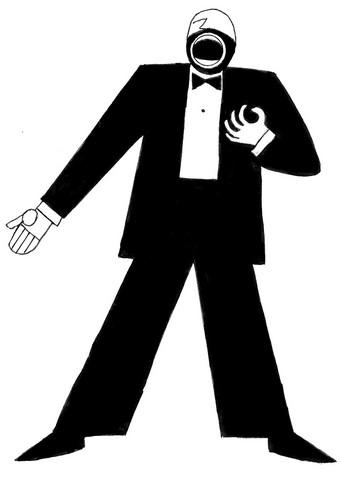Masterclasses
I'm a bit skeptical of masterclasses and to begin with, because a masterclass teacher has no way of knowing who you really are artistically and what sort of challenges you've faced musically, vocally and mentally. Still, masterclass teachers do not have any biases and may pick up on things other teachers have let slide. Under this web of skepticism I subjected myself to two masterclasses this week, one in conducting and one in voice. For the conducting masterclass I prepared two bits from this week's repertoire, the opening choruses from both the Purcell 'Come Ye Sons of Art' and the Tippett 'A Child Of Our Time'. I picked the Tippett chorus because I thought within the context of the larger, more thorny work, the opening chorus presented fewer musical challenges for the choir. I also thought that since it was the opening chorus that there would be a larger likelihood that it was covered in rehearal by the Tuesday afternoon masterclass. These assumptions were both right, but there was also the small detail that this movement contains a lengthy orchestral introduction. I came prepared with the introduction but was hoping I wouldn't need to conduct it, given my general squeamishness about my orchestral conducting ablities. It was made easier since I was only conducting our talented piano accompanist, but I was sure I would be ripped apart for making un-orchestral like gestures. Sure enough I had to conduct the whole introduction. It was a good exercise and I felt like I rose to the challenge, but it also made me realize I have a ton of work to do before I ever step in front of an orchestra. The masterclass teacher (names withheld for a number of reasons), had obviously worked with conducting students before since he knew when to be critical and when to lay off. He very quickly and accurately diagnosed some of my bad habits and worked with my gesture to achieve some variance according to the shape of the music. Strangely enough he told me I needed to breathe more for the choir, which was a surprise since that's all we did at WCC! It was a real treat watching him conduct the same repertoire with the orchestra later in the week and seeing how he responded to the challenges I faced in the music. This was the best example of learning by watching, which I think is the most valuable thing BCF has provided me in the past 4 weeks. Thursday brought the week's second masterclasses. I sang the Schubert piece I have been working on. The masterclass teacher had a lot to say and was very enthusiastic. She gave me some different perspectives about the dramatic contrasts in the song. I (and many other singers) have to be reminded that even though we know what the subtext is, it may not be easily apparent to the audience. The first part of the song features a narrator, a device I always struggle with as a singer: How much is direct storytelling to the audience and how much just painting the scene? (another post is waiting to be written about my impressions of Matthias Goerne, who I saw sing Mahler 'Knaben Wunderhorn' at Tanglewood last night. He's an especially gifted storyteller in song). In this song I tend towards painting the scene, but when called upon to tell the story directly (which felt rather artificial), found that the audience responded much more receptively. I'm frustrated to find that I still suffer from that student phenomenon of singing to a spot in the back of the room. Why do I still do that? I do think I am more comfortable with my musicianship at this stage. I think I've gained more confidence in my artistic personality in the past two years, since I've also gained more confidence in myself. I guess I still need to ponder my artistic presentation and integrate some of the confidence into it. But back to the masterclass. In addition to the dramatic things, we also worked on some vocal things. I can't say that I found these as helpful. This teacher is a very visceral singer and was trying to bring more of that out of me. We did an exercise in which we grasped hands and pulled hard in opposite directions while I was singing. This was to get me to physically feel the musical line. I did find that it caused my breath to drop lower since I was working so hard, but also found that it put undue stress upon my voice. My sound did get bigger, but I think it was because I was really pressing my cords together and forcing a lot of air through. I appreciate the exercise, but I do not think it was the ideal thing for an égalisé (light, balanced) voice such as mine. My new theory behind singing is that it's all based on acoustics. Because the voice creates overtones not found in instruments, a singer can create a sound that carries without much work, provided the air and the resonance are lined up just right. And so this sensation of working really hard to carry the musical line and singing from a sort of "primal" place doesn't really work for me. I guess that's something I'll have to think about when working with my next teacher. I imagine that I must be challenging to teach, since I am constantly thinking like a voice teacher and trying to anticipate what the teacher is going to say. Hopefully my analytical skills will be helpful in my own teaching. And when I have young students who try to teach themselves, I'll realize how annoying I must have been in my own student voice lessons!


0 Comments:
Post a Comment
<< Home